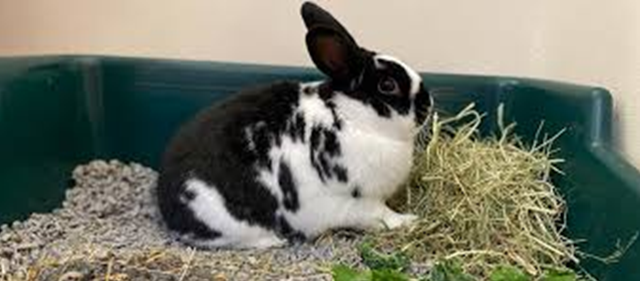Litter Training Difficulties in Rabbits: Challenges and Solutions

Litter training, or potty training, a rabbit can sometimes present challenges despite their natural inclination towards cleanliness. Understanding these difficulties and implementing effective solutions can help improve the success of litter training efforts. Here are common difficulties encountered when litter training rabbits and how to address them:
- Accidents Outside the Litter Box
Difficulty: Rabbits may occasionally eliminate outside the litter box, especially during the initial stages of training or when transitioning to a new environment. This can be frustrating for owners and may indicate a need for adjustments in training methods or environment.
As per Rabbit Care experts, “Accidents are a normal part of the litter training process. Avoid scolding or punishing your rabbit for accidents, as this can lead to fear or anxiety.” – retrieved from How to Litter Train a Rabbit
Solution:
- Identify Reasons: Determine potential reasons for accidents, such as incorrect litter box placement, inappropriate litter material, or stress-related behavior.
- Adjust Placement: Place the litter box in the area where your rabbit naturally tends to eliminate. Rabbits often prefer corners or secluded spots.
- Gradual Expansion: If your rabbit is free-roaming, gradually increase their space as they become more consistent with using the litter box.
- Cleanliness: Clean accidents promptly with a pet-safe cleaner to remove odors that may attract your rabbit to repeat the behavior in the same spot.
- Resistance or Reluctance to Use the Litter Box
Difficulty: Some rabbits may show reluctance or resistance to using the litter box, leading to inconsistent or incomplete training.
Solution:
- Patience and Persistence: Be patient and consistent in reinforcing positive behavior. Avoid punishing your rabbit for accidents, as this can create fear and hinder progress.
- Positive Reinforcement: Reward your rabbit with treats, praise, or affection immediately after they use the litter box correctly to reinforce the desired behavior.
- Introduce Gradually: Introduce the litter box gradually to your rabbit’s living space, starting in a smaller area where they spend most of their time.
- Preference for Chewing or Digging in the Litter Box
Difficulty: Some rabbits may exhibit behaviors such as chewing or digging in the litter box, which can lead to ingestion of litter material or messiness.
Solution:
- Litter Choice: Use rabbit-safe litter materials such as paper-based bedding, aspen wood shavings, or compressed sawdust pellets. Avoid clumping cat litters or aromatic woods that can be harmful if ingested.
- Provide Alternatives: Offer chew toys and safe digging areas outside the litter box to redirect these behaviors.
- Supervision: Monitor your rabbit’s behavior during litter box use and intervene if they show excessive chewing or digging.
- Unaltered Rabbits and Marking Behavior
Difficulty: Unaltered rabbits, particularly males, may exhibit territorial marking behaviors such as spraying urine outside the litter box.
Solution:
- Spaying or Neutering: Consider spaying or neutering your rabbit to reduce hormonal behaviors associated with marking territory.
- Cleanliness and Monitoring: Maintain a clean litter box to discourage marking. Monitor your rabbit’s behavior closely and consult with a veterinarian if marking persists.
- Health Issues Impacting Litter Box Use
Difficulty: Health problems such as urinary tract infections or gastrointestinal issues can affect a rabbit’s ability or willingness to use the litter box properly.
Solution:
- Veterinary Check-up: If your rabbit suddenly stops using the litter box or exhibits changes in elimination habits, consult with a veterinarian promptly. Addressing underlying health issues is crucial for maintaining litter training success.
- Proper Diet and Hydration: Ensure your rabbit’s diet is balanced and provides adequate hydration to support digestive and urinary health.
- Environmental Stressors
Difficulty: Changes in the environment, such as loud noises, new pets, or disruptions in routine, can stress rabbits and affect their litter box habits.
Solution:
- Stable Environment: Minimize environmental stressors and maintain a stable routine for your rabbit.
- Comfort and Security: Provide a quiet, secure space for the litter box where your rabbit feels safe and comfortable.
